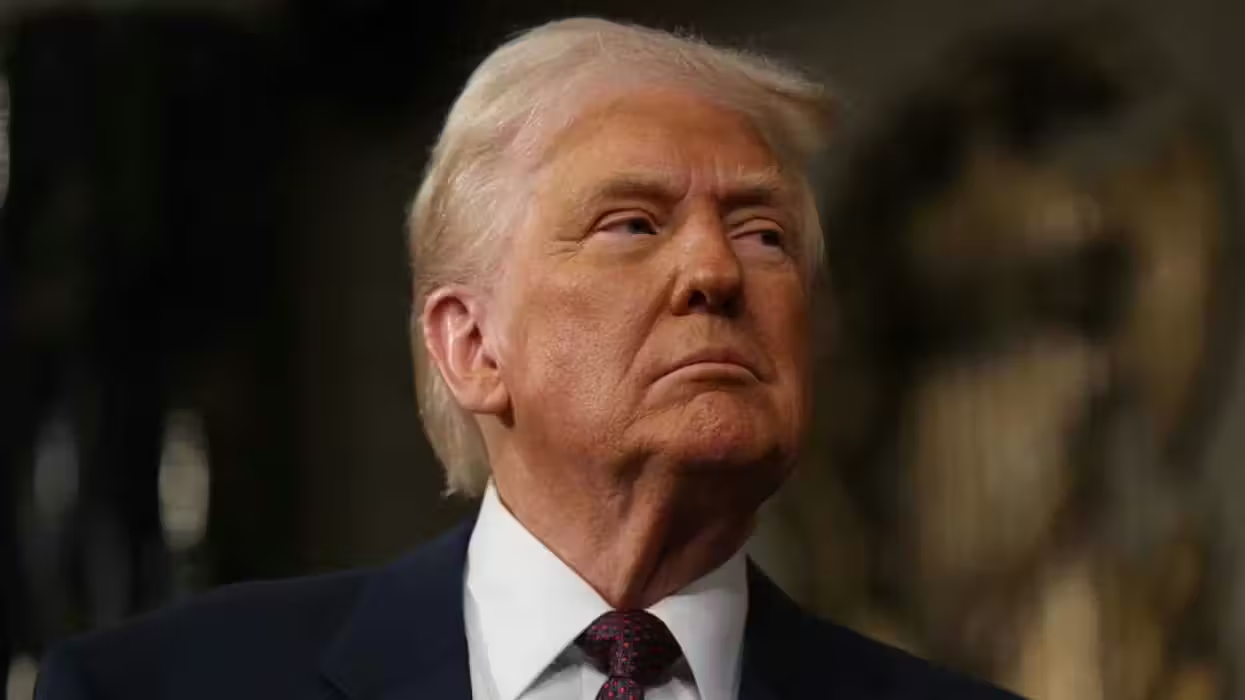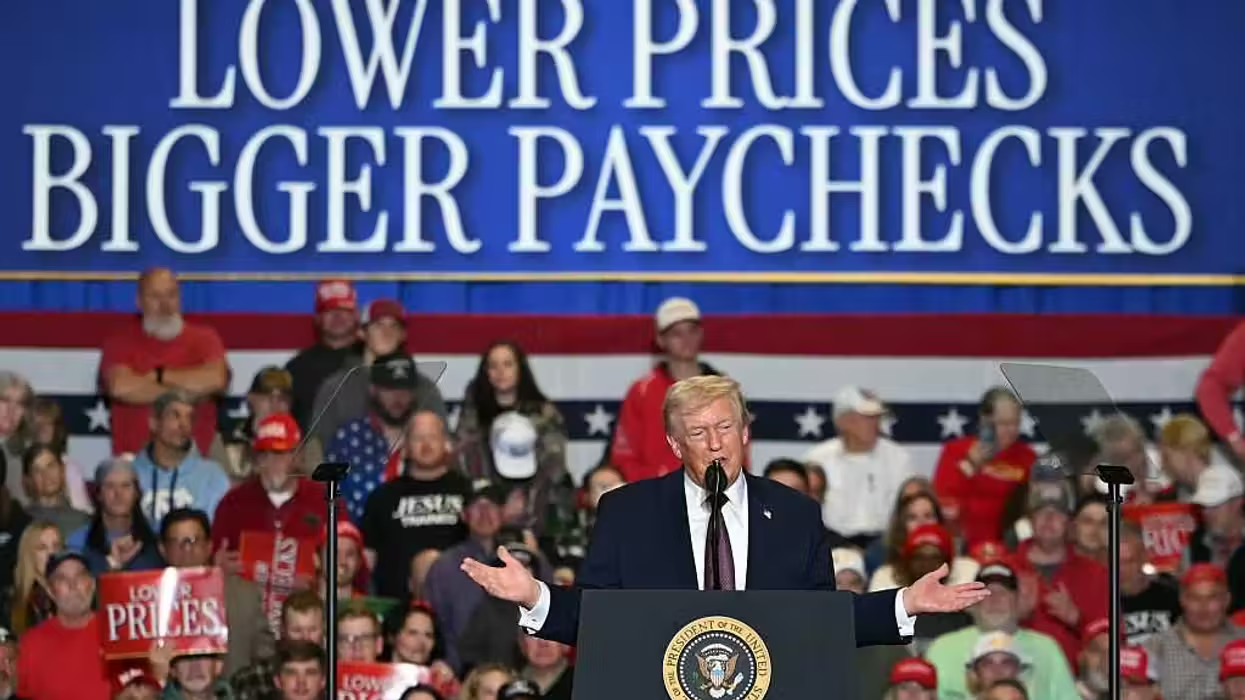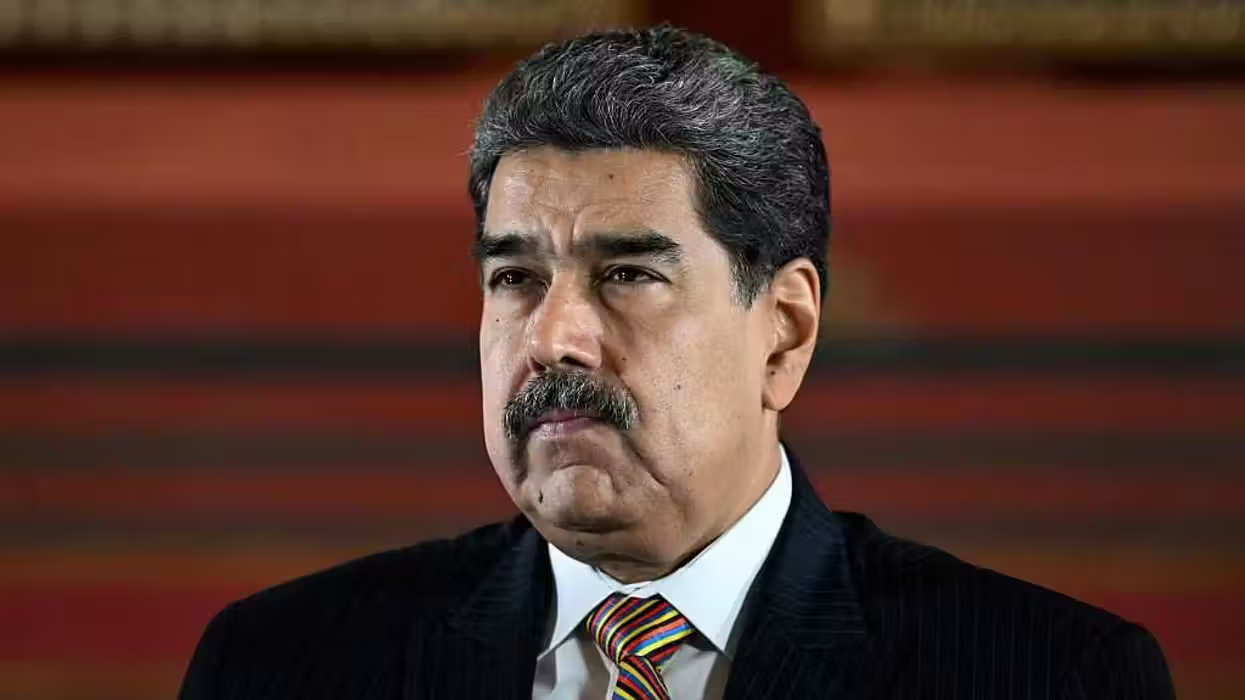© 2026 Blaze Media LLC. All rights reserved.
 BOCA RATON, FL - OCTOBER 22: U.S. President Barack Obama (R) debates with Republican presidential candidate Mitt Romney as moderator Bob Schieffer listens at the Keith C. and Elaine Johnson Wold Performing Arts Center at Lynn University on October 22, 2012 in Boca Raton, Florida. The focus for the final presidential debate before Election Day on November 6 is foreign policy. (Credit: Getty Images)
BOCA RATON, FL - OCTOBER 22: U.S. President Barack Obama (R) debates with Republican presidential candidate Mitt Romney as moderator Bob Schieffer listens at the Keith C. and Elaine Johnson Wold Performing Arts Center at Lynn University on October 22, 2012 in Boca Raton, Florida. The focus for the final presidential debate before Election Day on November 6 is foreign policy. (Credit: Getty Images)
Tonight's debate included a number of surprises, and many surprising omissions. Despite this being allegedly a debate about foreign policy, there was no mention of the crisis in the Eurozone. There was no mention of drug cartels in Mexico, or of Fast and Furious. And perhaps most surprisingly of all, there was no attempt by GOP nominee Mitt Romney to seriously prosecute the case against President Obama on his handling of the Benghazi attacks. Indeed, even CNN contributor and former White House green jobs czar Van Jones noted with some bewilderment that Romney had declined to further "politicize" the issue.
This was not what many commentators had expected. The spicy exchange between Romney and Obama in last week's town hall debate over Libya, in which some commentators half expected the two to come to blows, was widely anticipated to be an opening bell for a much more contentious attempt to re-litigate the issue tonight. Instead, voters were treated to 50,000 foot rhetoric from both sides on the tragedy of Libya, with little to no attempt by Romney to punch at the President's handling of the crisis. Indeed, Obama gave probably the most detailed answer on Libya, and got no pushback.
"I think it’s important to step back and think about what happened in Libya," Obama said. "Keep in mind that I and Americans took leadership in organizing an international coalition that made sure that we were able to, without putting troops on the ground at the cost of less than what we spent in two weeks in Iraq, liberate a country that had been under the yoke of dictatorship for 40 years. Got rid of a despot who had killed Americans and as a consequence, despite this tragedy, you had tens of thousands of Libyans after the events in Benghazi marching and saying America is our friend. We stand with them."
Romney's only response was, "It’s wonderful that Libya seems to be making some progress, despite this terrible tragedy."
He then pivoted to Egypt.
It's unclear what motivated this abrupt decision to concede ground, though most of Romney's more hawkish supporters don't seem to have cared. Charles Krauthammer called the debate decisively for Romney.
“Now, I would have gone after Obama on Libya with a baseball bat, but that’s why Romney has won elections and I have never even contested them,” Krauthammer remarked.“The high point of that debate for Romney is when he devastatingly leveled the charge of Obama going around the world on an apology tour. Obama’s answer was: ‘ask any reporter and they will tell you it wasn’t so.’ That’s about as weak an answer you can get.”
Bill Kristol - one of the more militarily focused commentators in Romney's corner - focused on Romney's Presidential bearing rather than critique him point by point:
Only two other challengers have done as well debating foreign policy with an incumbent president—Ronald Reagan against Jimmy Carter in 1980 and, to a lesser degree, Bill Clinton against George H.W. Bush in 1992. Reagan and Clinton won. Romney is now on track to becoming the third challenger to win in the last 32 years—and the first in 80 years to defeat an incumbent who didn't have a primary challenge.Generally, the consensus was that the President won the debate on points, though many commentators critiqued his demeanor for being overly aggressive.
Nevertheless, this decision by Romney to avoid critiquing Benghazi may serve to keep the election narrowly focused going forward. This may or may not help President Obama, given that the absence of a foreign policy fight upon which to engage Governor Romney means that the election will likely be fought over the economy, where Romney himself has a substantial advantage with voters.
Want to leave a tip?
We answer to you. Help keep our content free of advertisers and big tech censorship by leaving a tip today.
Want to join the conversation?
Already a subscriber?
more stories
Sign up for the Blaze newsletter
By signing up, you agree to our Privacy Policy and Terms of Use, and agree to receive content that may sometimes include advertisements. You may opt out at any time.
Related Content
© 2026 Blaze Media LLC. All rights reserved.
Get the stories that matter most delivered directly to your inbox.
By signing up, you agree to our Privacy Policy and Terms of Use, and agree to receive content that may sometimes include advertisements. You may opt out at any time.






